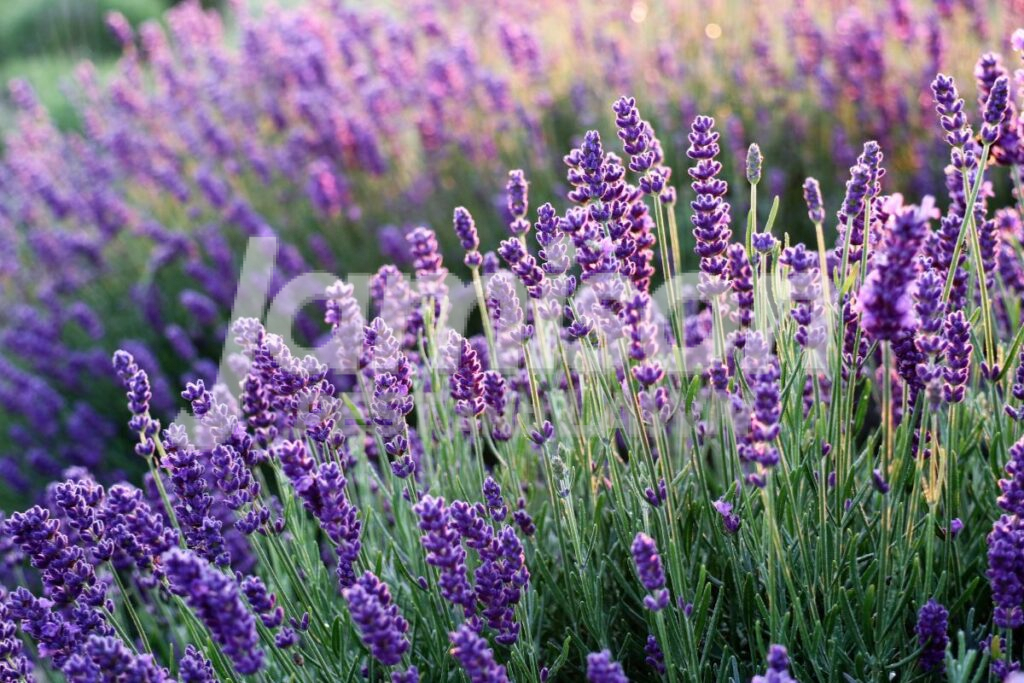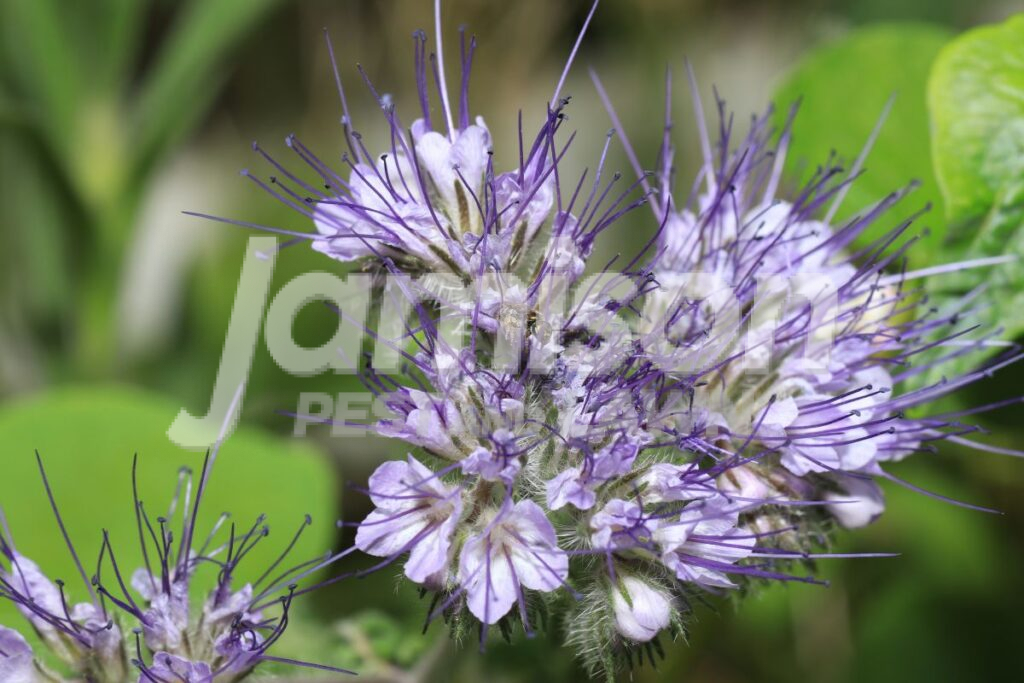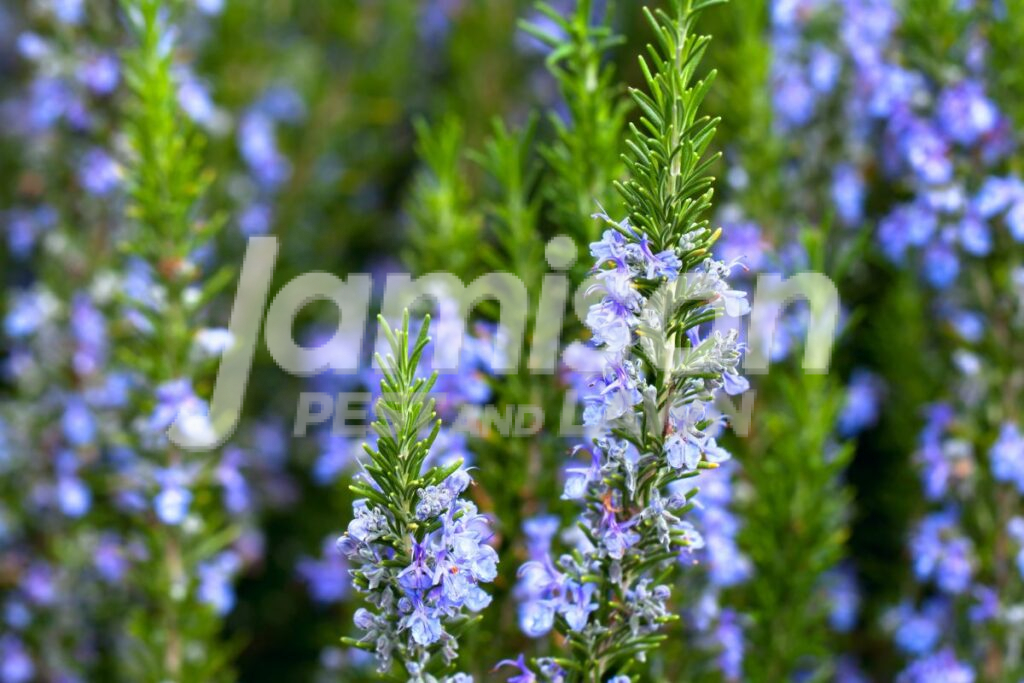Summer is here and steadily, the temperatures are warming up. Though the summers bring bright sunshine and a lot of barbecues, they can bring several problems too.
If you are a homeowner in Tennessee or Mississippi, we don’t have to tell you how hot it can get. Along with soaring temperatures, it’s a season where ticks really thrive.
There are different types of ticks and some of them are known to spread diseases like Lyme disease, Rocky Mountain spotted fever, and other illnesses. While professional tick control services are essential for keeping your yard safe, there are also natural methods you can use to reduce the tick population around your home. One effective and eco-friendly strategy is to use tick-repellent plants.
In this blog post, we’ll explore the top plants known for their tick-repelling properties, how they work, and tips for integrating them into your garden.
Why Are Tick-Repellent Plants Effective?
Tick-repellent plants produce natural chemicals or emit fragrances that ticks find unappealing. These plants often contain essential oils that act as natural insecticides or deterrents. When strategically placed around your home and garden, they can help to create a protective barrier against ticks.
Next, we talk about the plants that can help you achieve a tick-free yard!
Top Tick-Repellent Plants
Let’s delve into some of the most effective plants you can use to keep ticks at bay.
Lavender

Lavender is a hardy perennial shrub that features tall spikes of purple flowers and gray-green foliage. Its calming fragrance and stunning beauty make it a beloved addition to any garden, creating a serene atmosphere that homeowners adore. Beyond its aesthetic appeal, lavender is also popular in aromatherapy and personal care products. Though we love the smell of lavender, ticks absolutely do not!
How It Works:
As we stated, the strong scent of lavender repels ticks. Lavender produces essential oils rich in linalool and linalyl acetate, compounds known for their insecticidal properties. These chemicals interfere with the nervous system of ticks, deterring them from areas where lavender is planted.
Planting Tips:
Lavender grows best in well-drained soil and requires full sun. It’s perfect for borders, garden beds, and containers.
Marigolds

Marigolds are annual plants known for their bright, cheerful flowers that range in color from yellow to deep orange. These thrive in warm conditions so you would not have much difficulty planting them around your Tennessee home. They are often used in companion planting to deter various pests due to their strong scent and vibrant appearance.
How It Works:
Marigolds contain pyrethrum, a natural compound used in many insect repellents. The strong scent of marigolds also acts as a deterrent, keeping ticks and other pests away.
Planting Tips:
Plant marigolds in full sun with almost any type of soil. They work well in gardens, around edges, and in planters.
Chrysanthemums

Chrysanthemums, commonly known as mums, are vibrant perennial flowers that bloom in a variety of colors, including white, yellow, red, and purple. Their cheerful appearance makes them a popular choice for gardens and outdoor spaces.
How It Works:
By incorporating mums into your landscaping, you create a beautiful and effective barrier against ticks. Chrysanthemums naturally contain pyrethrins, compounds that act as powerful tick repellents. The strong scent of these chemicals helps keep ticks at bay, making your garden less hospitable to these unwanted pests.
Planting Tips:
Chrysanthemums thrive in sunny locations and fertile, well-drained soil. They’re versatile plants that work well in borders, garden beds, or even in containers on patios and decks.
Pennyroyal

Pennyroyal is a small, perennial herb that belongs to the mint family. Like mints, this has a fresh, strong, aroma. This plant produces small flowers and has historically been used for medicinal purposes and as an insect repellent.
How It Works:
The potent scent of pennyroyal is due to its high concentration of pulegone, an essential oil that repels ticks and other pests. Pulegone is toxic to insects, disrupting their neurological function and deterring them from the area.
Planting Tips:
Pennyroyal is easy to grow and cultivate. However, it can be invasive, so it’s best grown in containers. It prefers partial shade and moist soil.
Rosemary

We all know how effective rosemary is when it comes to elevating our recipes. However, it’s pretty versatile. Rosemary is an evergreen shrub with needle-like leaves. These grow at length and sometimes you can see blue or white flowers. The plant’s aromatic foliage releases a distinctive scent when brushed against or crushed.
How It Works:
The essential oils in rosemary, particularly cineole, camphor, and borneol, are potent natural repellents against ticks. These compounds disrupt the tick’s ability to detect prey through olfactory signals, effectively creating an inhospitable environment for them. There are also several products available that contain rosemary oils.
Planting Tips:
Rosemary prefers sunny spots and well-drained soil. It can be grown in pots or an herb garden.
Garlic

Garlic is a bulbous plant known for its culinary uses and health benefits. It grows tall stalks with white or purple flowers and has a pungent odor that is released when the bulb is crushed.
How It Works:
The sulfur compounds in garlic, such as allicin, act as natural tick deterrents. These compounds interfere with the tick’s sensory receptors, making it difficult for them to locate hosts. Additionally, when garlic is consumed, the sulfur compounds are excreted through the skin, providing further protection.
Planting Tips:
Plant garlic in full sun with well-drained, well-fertilized soil. It can be grown in garden beds or containers.
Sage

Sage is a herb with woody stems and grayish-green leaves. Though not a flower that you can put as a centerpiece, it can really create a cohesive look when used to fill the borders of your yard. It is often used in cooking and traditional medicine.
How It Works:
Sage contains essential oils like camphor, thujone, and cineole, which have insect-repellent properties. These compounds disrupt ticks’ senses, making it virtually impossible to find a host. The strong aroma of sage also masks the scents that attract ticks.
Planting Tips:
Sage thrives in full sun and well-drained soil. It can be grown in herb gardens, borders, or containers.
Lemongrass

Lemongrass is a tall grass that forms dense clumps and can grow up to 6 feet tall. Thanks to its strong lemon scent, the leaves are regularly used to enhance the taste of tea. However, lemongrass is also prized for its insect-repellent properties. Lemongrass thrives in warm, humid climates, making it well-suited for the climates of Tennessee and Mississippi.
How It Works:
The primary component of lemongrass that repels ticks is citronella oil. Citronella is widely recognized for its ability to deter insects, including mosquitoes and ticks. The essential oils in lemongrass also have strong scents, further repelling them from areas where the plant is present.
Planting Tips:
Lemongrass prefers areas with full sun and fertile, well-drained soil. It can be grown in lawns or pots around your home.
Additional Tips for Tick Control
While planting tick-repellent plants is a great start, there are other steps you can take to ensure your yard remains tick-free.
Proper Lawn Maintenance:
One of the best ways to control ticks is through proper yard maintenance. Ticks prefer tall grass and wooded areas, so keeping the grass mowed and removing debris can make a major difference.
Also Read: 5 Tick Sprays for Your Yard In 2024 That Are Safe & Effective
Professional Tick Control Services:
Sometimes, despite your best efforts, ticks can still be a problem. Professional tick control services can provide treatments that are safe and effective, offering peace of mind for you and your family.
For more tips, visit our blog post: A Homeowner’s Guide To Tick Control In Memphis, MN
Best Tick Control Services In Tennessee and Mississippi
We hope that you are now aware of what plants keep ticks away from your home. Though these are effective, the key is to combine these natural methods with regular yard maintenance and, if necessary, professional tick control services.
At Jamison Pest and Lawn, we have years of experience getting rid of pests, and we offer the best tick control services in the area. Our pest control experts have the knowledge and skills to make sure that ticks do not bother you, your family, or your pets.
Contact us today at (901) 452-1505 to learn more about us.




